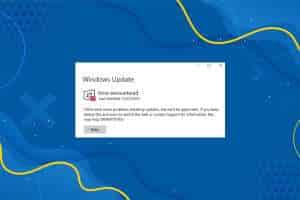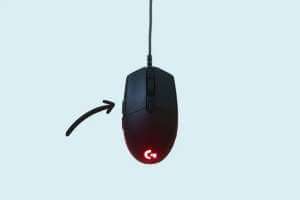Files and folders on Windows are copied quickly and effortlessly. Sometimes, you may encounter an unspecified error while copying a file or folder on your Windows 10 or Windows 11 computer. This can be caused by various factors, such as a corrupted file or Insufficient storage space Or a problem with the file system.
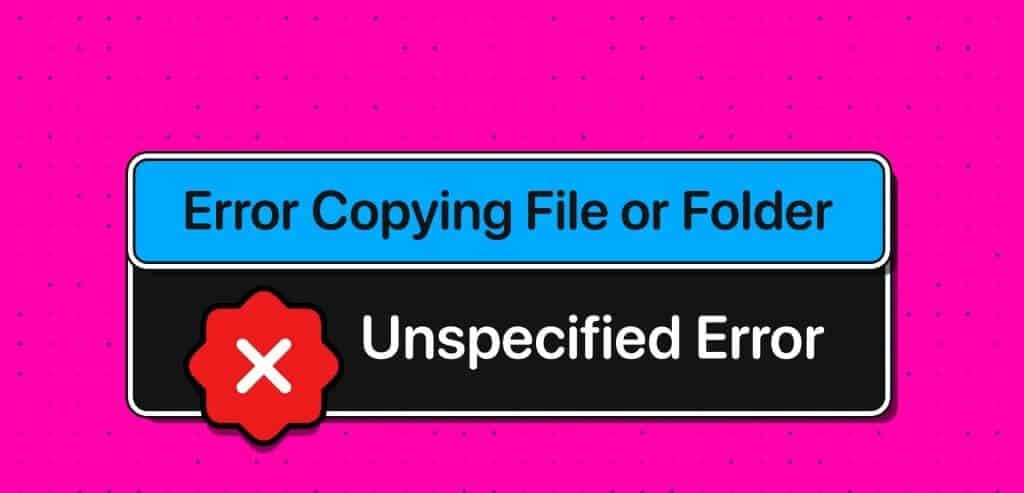
Resolving such errors can be difficult because the cause isn't explicitly stated. We've listed all the possible ways to fix the unspecified error when copying a file or folder on Windows 10 and Windows 11 computers.
1. Ensure there is sufficient storage space.
Lack of storage space is one of the most common reasons why you might encounter problems copying files and folders to your drive. Therefore, it's the first thing you need to check.
Step 1: Click on Windows Key + E keyboard shortcut To open File Explorer.
Step 2: Select This PC from the left pane. Right-click CD player Where you want to copy the files, select Properties.
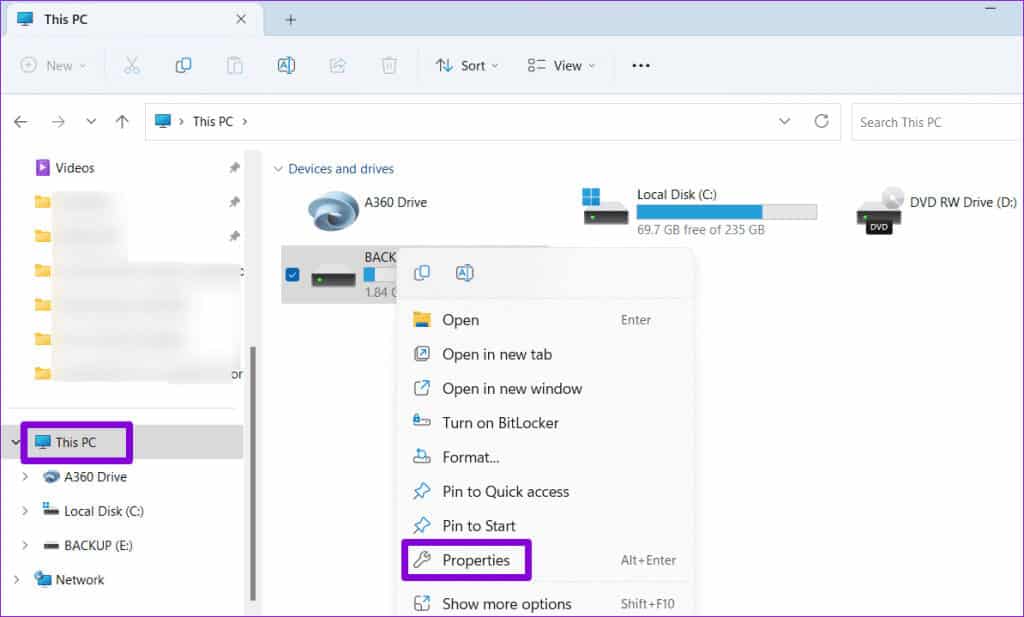
Step 3: Under the tab "general" Check the value next to the free space.
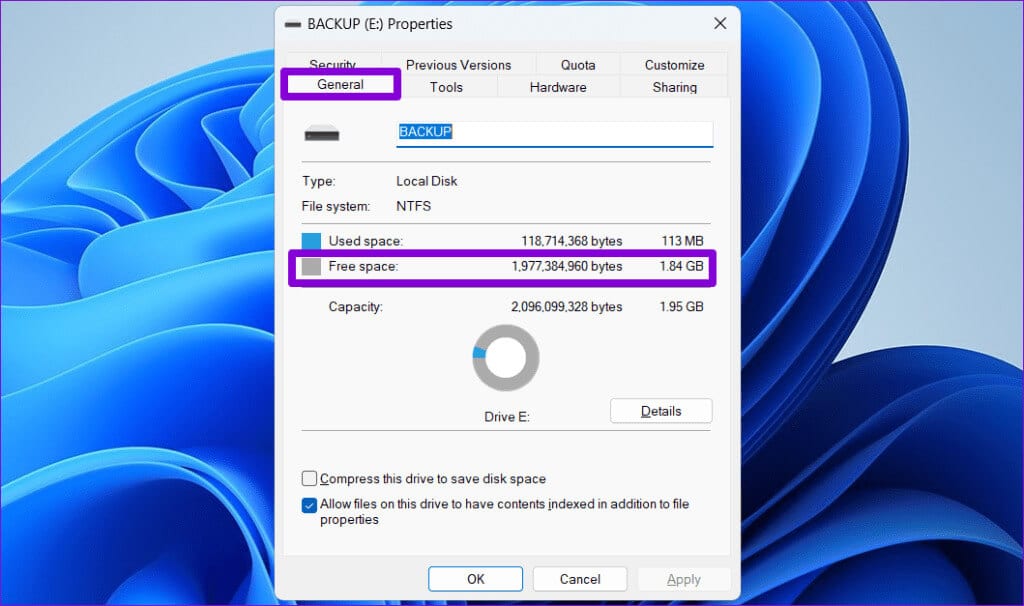
If the available storage space is not sufficient to accommodate File or folder size which you are trying to copy, free up some space on your drive and try again.
2. Check the format of the destination drive.
Are you trying to copy a file to an external drive that uses a non-NTFS format? If so, you're likely to encounter these issues. For example, if the destination drive is formatted with FAT32, transferring a file larger than 4GB is likely to fail and result in an error.
To check the disk format of the destination drive, use the following steps:
Step 1: Click on Keyboard shortcut Windows + E To open File Explorer on your computer.
Step 2: Go to This PC, right click on CD player your own, select Properties.

Step 3: Within a year, check out file system For your drive.
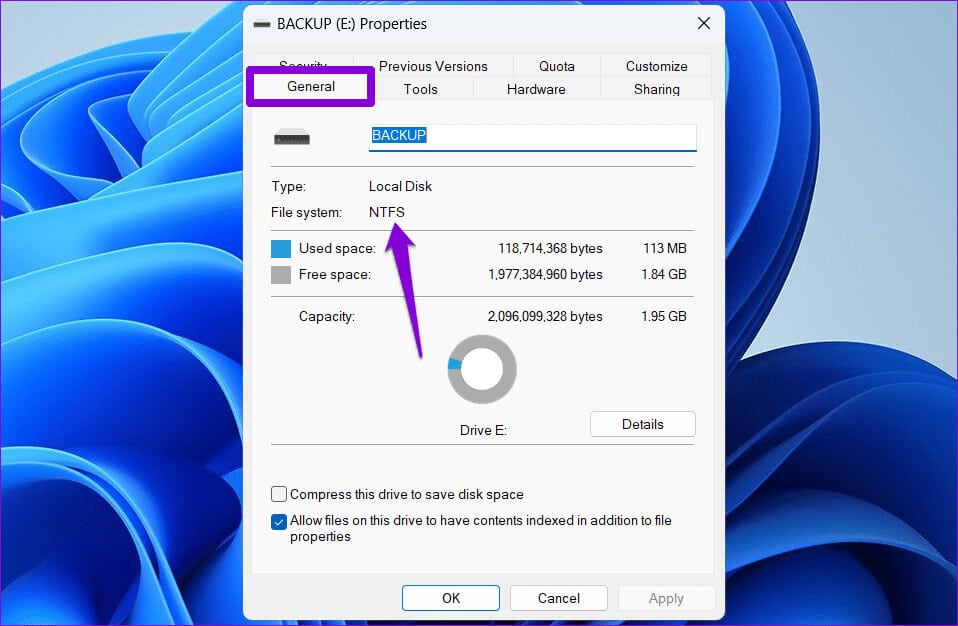
If it says NTFS, the disk format is not an issue, and you can follow the solutions below. If it says FAT32, you may need to Format the drive In NTFS format.
3. Remove write protection from the drive.
Another reason you might have trouble copying files or folders to a storage drive is if it is write-protected. In this case, you'll need to use the DiskPart utility to remove the write protection from the drive. Here are the steps for doing the same.
Step 1: Right click on start icon and select Terminal (Admin) from the list.
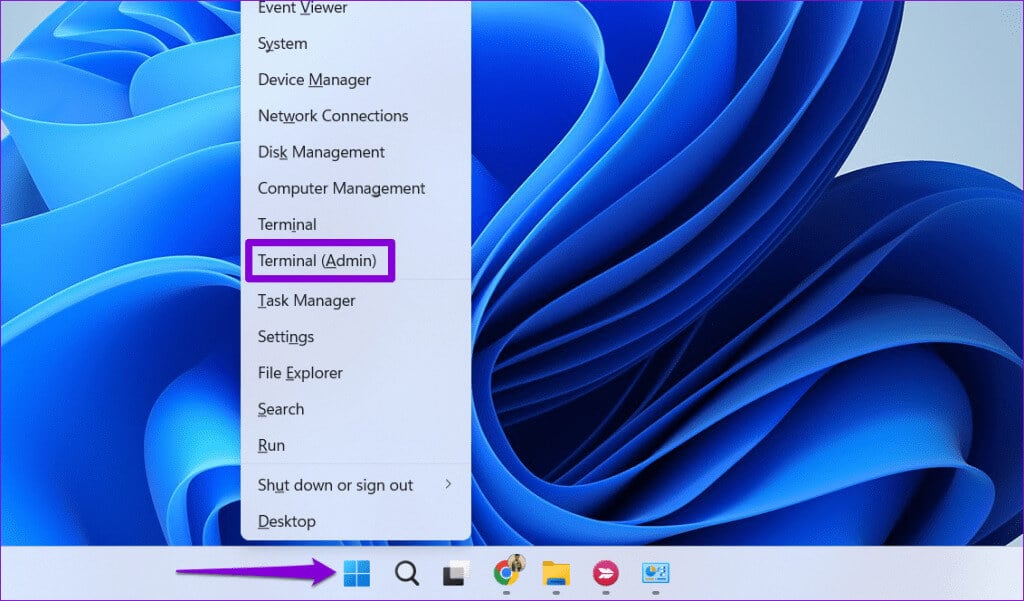
Step 2: Locate yes When the User Account Control (UAC) prompt appears.
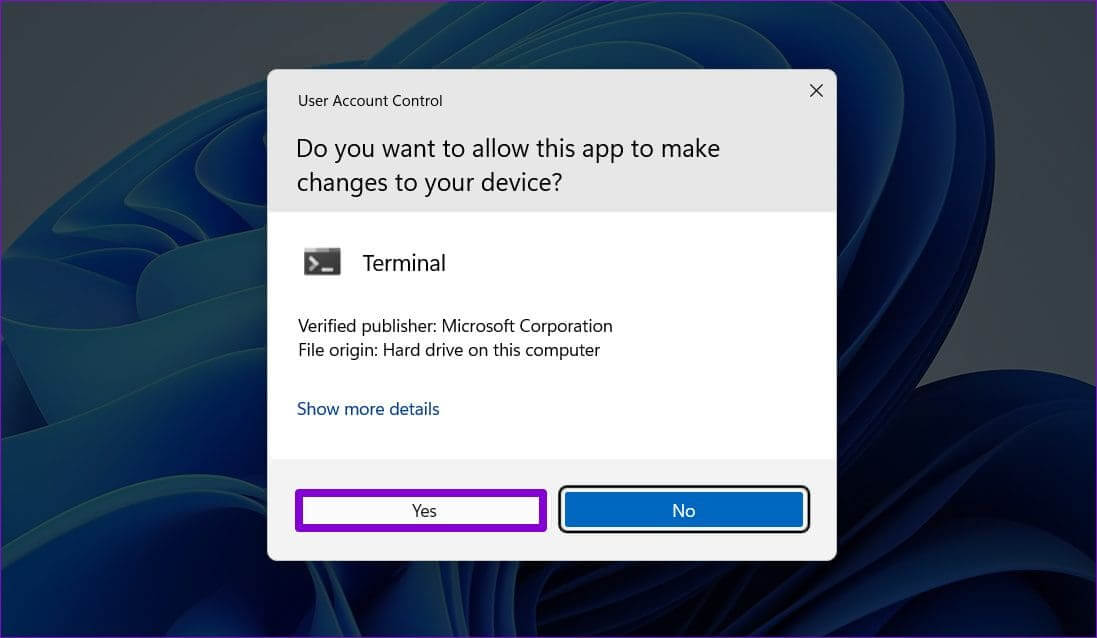
Step 3: Type diskpart On the console and press Enter.
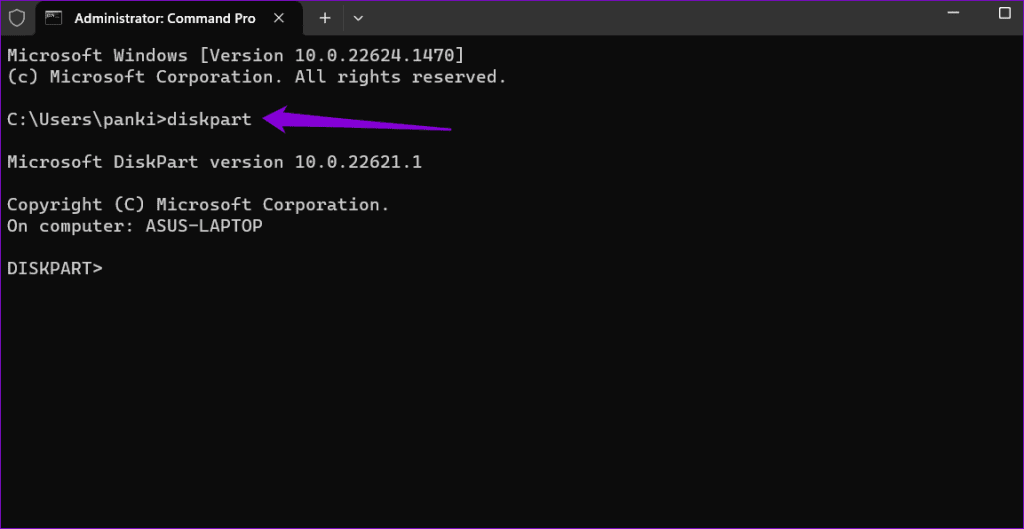
Step 4: Type list disk And press Enter To display a list of storage devices connected to your computer.
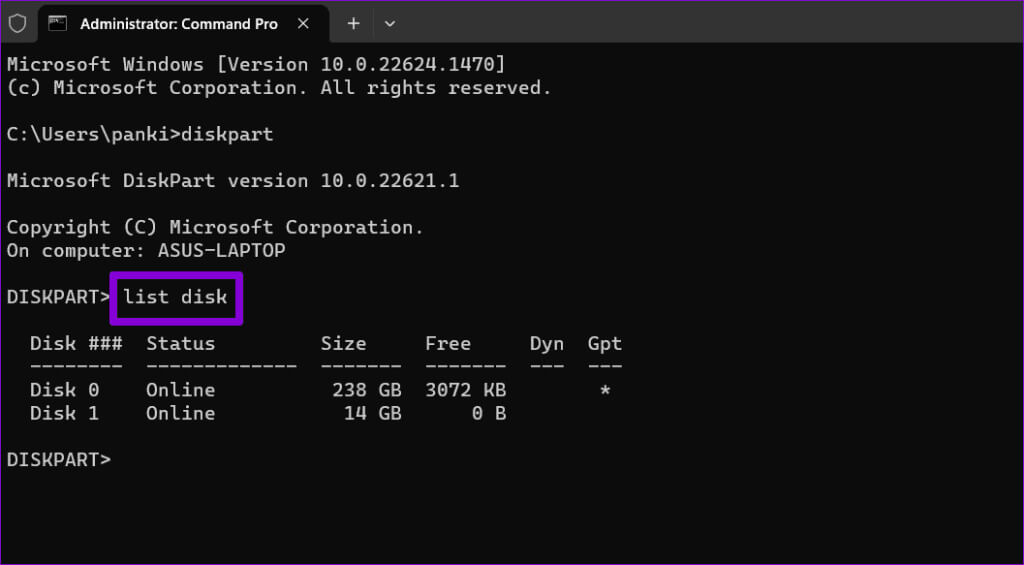
Select disk N
replace N In the above command the actual number associated with the disk.
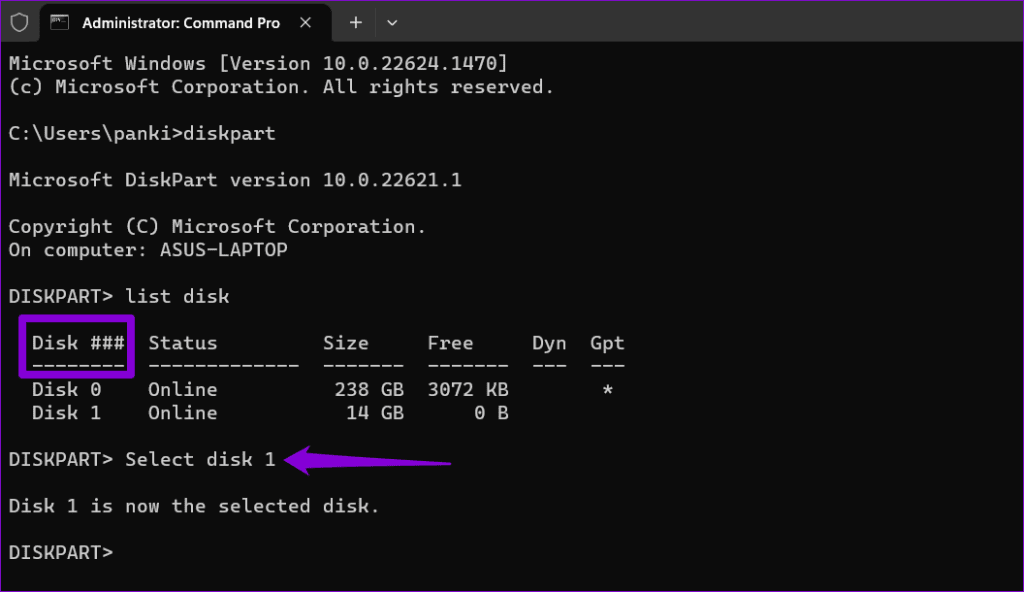
Step 6: Paste the following command and press Enter To remove write protection for the selected device.
attributes disk clear readonly
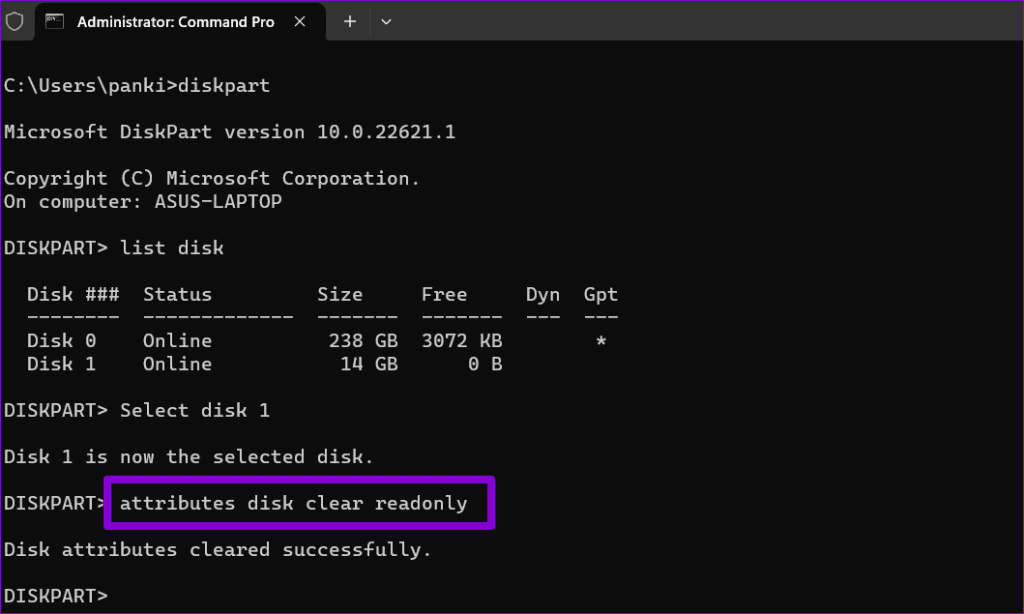
After completing the above steps, you can copy files and folders to this drive.
4. Download and run the file and folder troubleshooter.
Microsoft offers a file and folder troubleshooter that can automatically fix problems that prevent you from copying or moving files and folders. Running the troubleshooter can help address an unspecified error encountered while copying a file or folder on your Windows 10 or Windows 11 PC.
Step 1: Download the File and Folder Troubleshooter From the Microsoft website.
Download File and Folder Troubleshooter
Step 2: Double-click the downloaded file. Then click "the following" To run the troubleshooter.
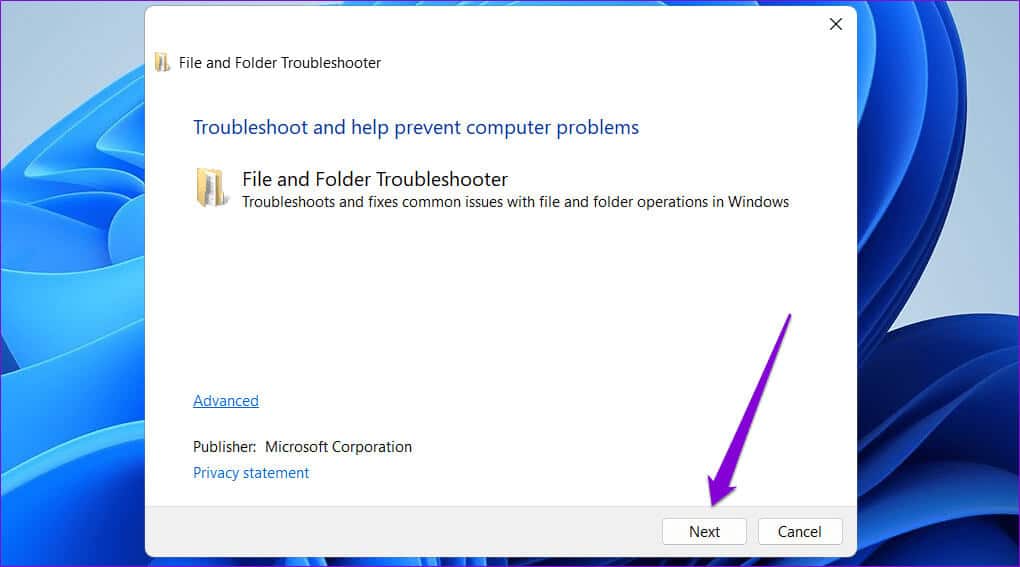
Step 3: Select an option “Rename or move files and folders” And press next one.
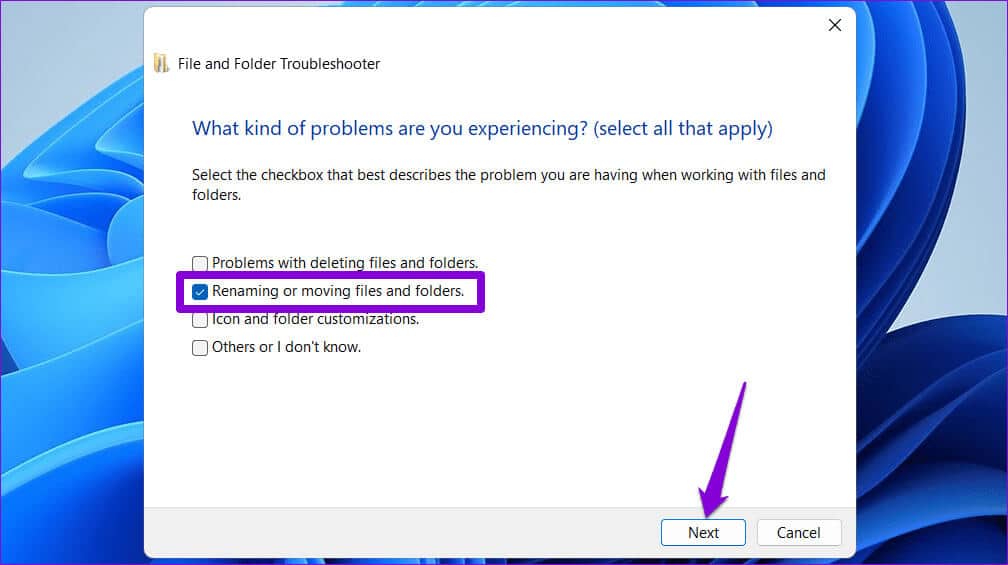
Wait for the troubleshooter to detect and fix any problems, and then try copying files and folders again.
5. Modify file or folder permissions
Windows may display the unspecified error if your current user account doesn't have permission to copy the file or folder. To fix this, you need to gain full control of the file or folder you're trying to copy.
Step 1: Right-click on the file or folder you want to copy and select Properties.
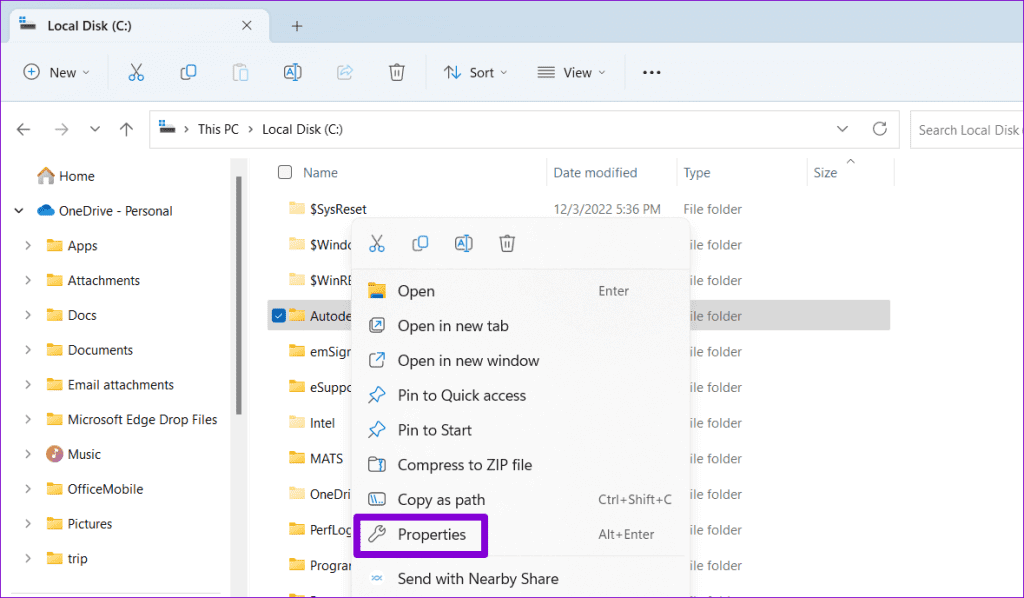
Step 2: Under the Security tab, click the button Release.
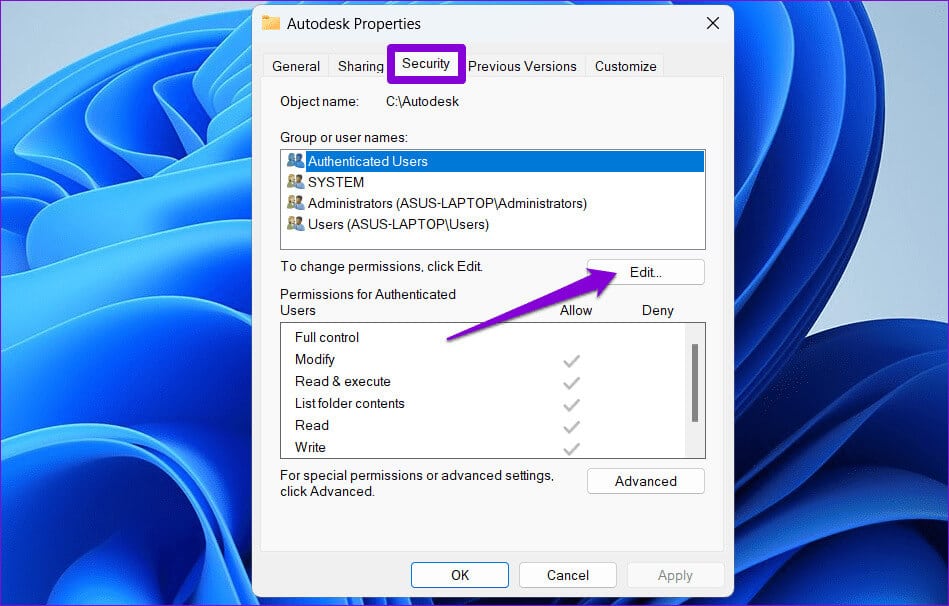
Step 3: Select the Allow check box next to Full Control. Then tap Application , followed by Agreed.
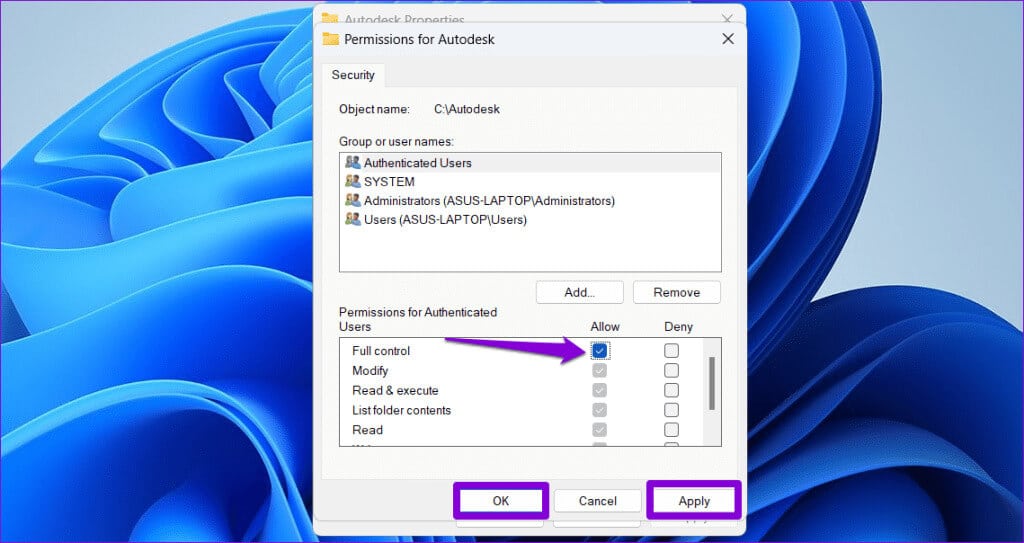
After completing the above steps, try copying or moving your file or folder.
6. Create a new user account
Issues with your user account can also cause an unspecified error while copying files and folders on Windows 10 or Windows 11. If this is the case, you'll need to create a new user account and switch to it.
Step 1: Click on Windows Key + I keyboard shortcut To open an application Settings. On the Accounts tab, click Other users.
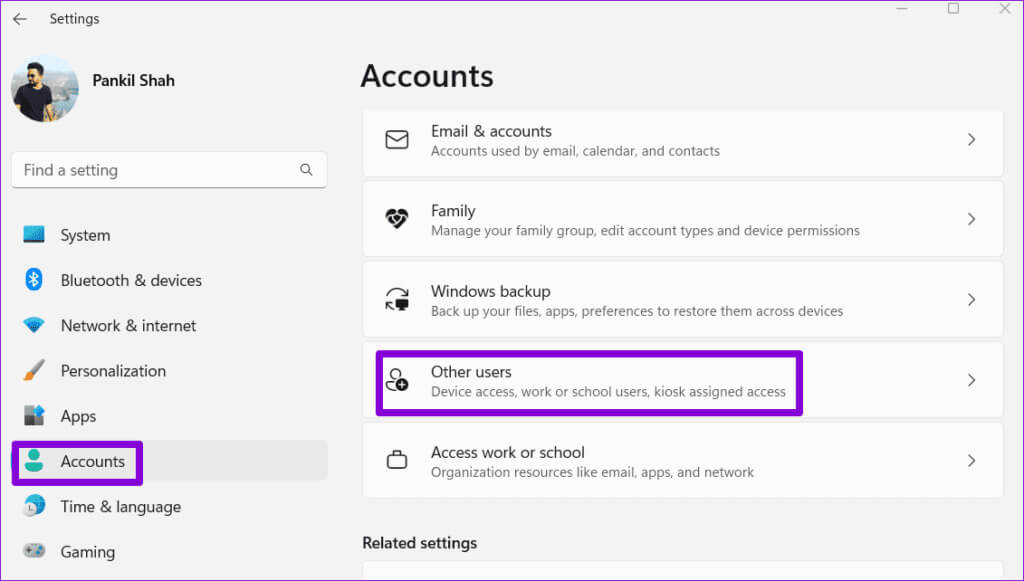
Step 2: Click the button “Add account”.
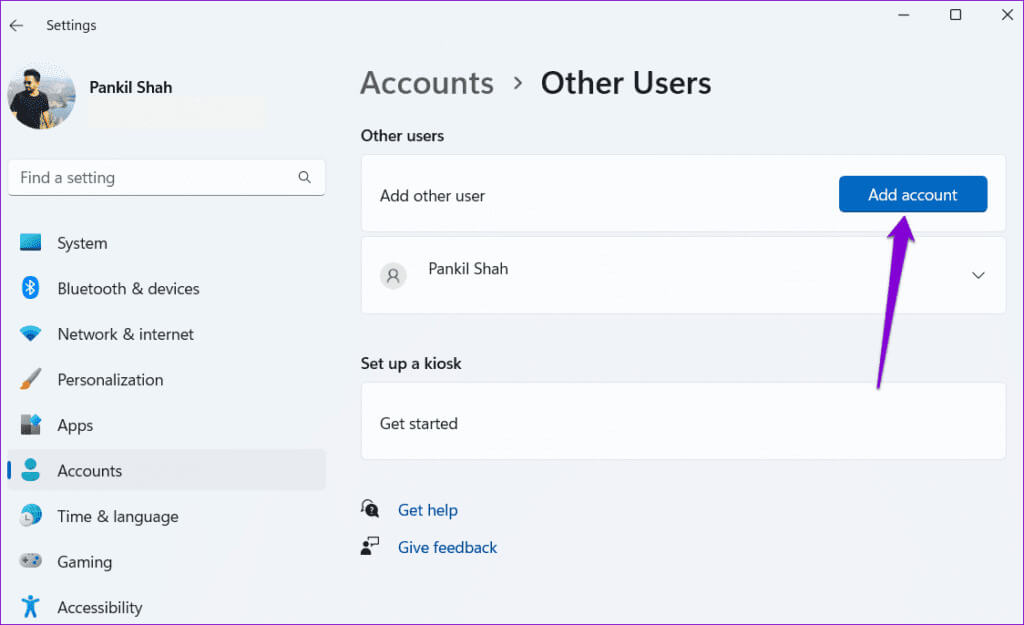
Step 3: Enter your email address and follow the on-screen instructions to create a new user account on Windows.
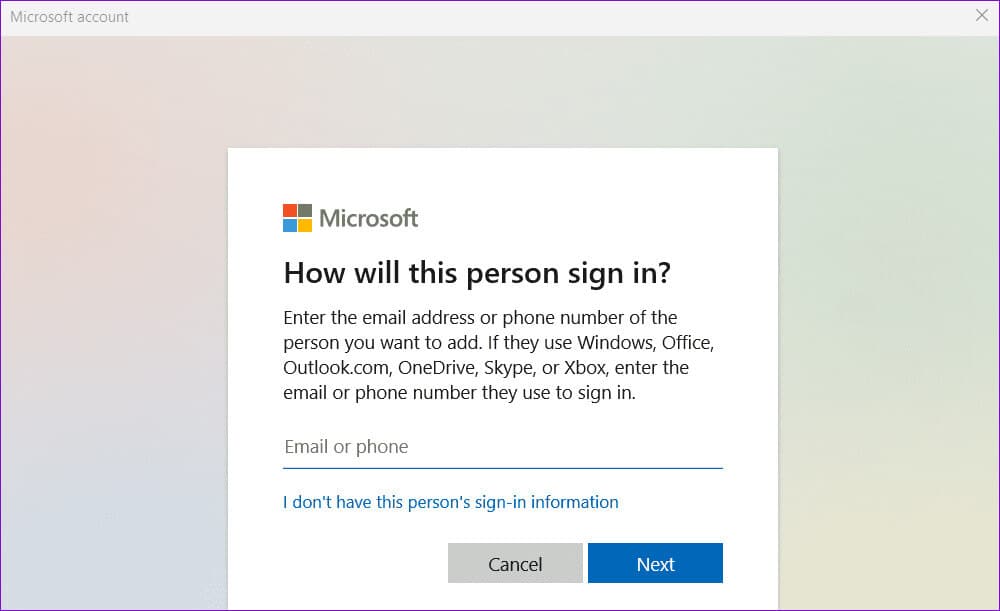
Switch to the newly created user account. And see if you can copy files and folders.
Defeat the undefined error
Copying files and folders is something you may have to do regularly on your computer. While issues like the unspecified error can sometimes prevent you from copying a file or folder on your Windows 10 or 11 computer, you can't fix anything with the tips above.







